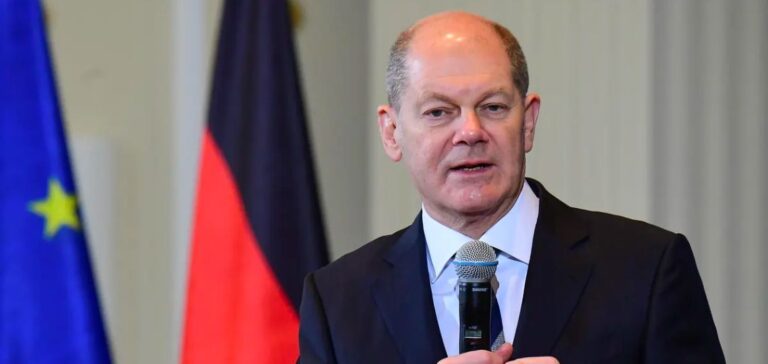Germany wants to present in the next few weeks a reform of its electricity market in order to bring down prices “from this winter” by reducing the profits of the sector, a subject bitterly debated at EU level.
The reform desired by Berlin is proposed “in coordination” with the EU and should “be applied at high speed (…) from this winter”, announced Chancellor Olaf Scholz in a speech to business leaders on Tuesday.
“We are changing the design of the energy market in Germany. And we are going to do it in the next few weeks,” added Economics Minister Robert Habeck at the same event.
In the European market, the cost price of the last source of electricity mobilized to meet demand, often gas-fired power plants, determines the tariff that is imposed on all operators on the continent. However, the price of gas has soared in the wake of Russia’s invasion of Ukraine, bringing with it the price of electricity.
Many companies producing electricity from sources other than gas (renewables, coal, nuclear) have seen their profits soar in this context, without suffering from higher production costs.
The idea is now to cap and puncture these “excess profits” and reallocate the difference to European businesses and households. The German proposal is “almost the same” as the one presented in early September by the European Commission, said Scholz.
Reform
“It is inconceivable that (…) those who produce electricity with wind power, solar power or coal (…) make additional profits because the price is determined according to the electricity produced with gas,” justified Scholz.
A “solidarity contribution” for fossil fuel producers making large profits was also mentioned by the European Commission in early September.
The reform of this system, long called for by France, but which divided the EU-27, now enjoys near consensus within the EU.
The European Union’s energy ministers are due to meet in Brussels on 30 September to examine the European Commission’s proposals, following an initial meeting in early September.
However, in order to face the risk of recession that the crisis poses to their economy, the Germans are ready to act without waiting for their European neighbors.
“We will pass this very quickly to ease the burden” on German households, Scholz said.
The Minister of Economy has also assured that the price cuts thus generated by the reform would be “retroactive” over the whole year 2022.
According to the price comparison Check24, a “typical household” in Germany with a consumption of 20,000 kWh paid in August 3,717 euros per year for its gas, an “increase of 185%” over one year.





















